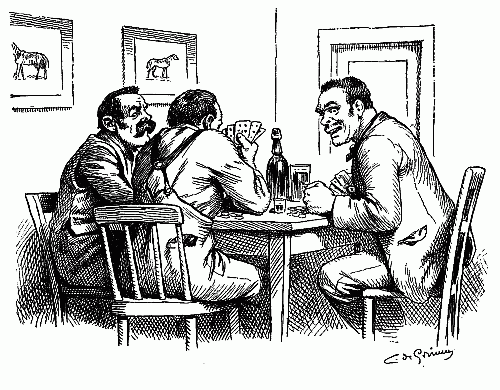 Lifestyles of the Poor and Unknown
Lifestyles of the Poor and Unknown
In the 1980s, one of the most popular programs on American television was a weekly show called Lifestyles of the Rich and Famous. Each week, the host visited celebrities and royalty at their luxurious mansions, fawning over their exotic cars, million-dollar jewelry, and lavish wardrobes. It was conspicuous consumption at its most nauseating, and viewers couldn’t get enough of it. But don’t we all secretly envy the rich and famous? Don’t we believe that if only we were rich, it would solve all our problems? Don’t we long to be recognized and loved by millions of people?
This craving for fortune is nothing new. Two thousand years ago Jesus said, "It is easier for a camel to go through the eye of a needle than for a rich man to enter the kingdom of God." (Mark 10:25 NIV)
Why is that? Jesus, who knew the human heart better than anyone ever has or ever will, understood that it's a matter of priorities. Too often, rich people make wealth their number one priority instead of God. They spend most of their time making wealth, spending it, and increasing it. In a very real sense, money becomes their idol.
God won’t stand for that. He told us so in his First Commandment: "You shall have no other gods before me." (Exodus 20:3 NIV).
What Riches Can't Buy
Today, we still believe the lie that money can buy happiness. Yet hardly a week passes that we don’t read about rich celebrities getting a divorce. Other high-profile millionaires get in trouble with the law and have to enter drug or alcohol rehab programs. Despite all their money, many rich people feel empty and without meaning. Some surround themselves with a dozen hangers-on, confusing opportunists with friends. Others get pulled in by New Age beliefs and religious cults, searching in vain for something that will help them make sense of their lives.While it’s true that wealth can purchase all kinds of thrills and creature comforts, in the long run, those things amount to high-priced glitter and trash. Anything that ends up in a junkyard or landfill cannot satisfy the yearning in the human heart.
Lifestyles of the Poor and Unknown
Since you have a computer and Internet service, you’re probably not living below the poverty line. But that doesn’t mean the lure of riches and possessions never tempts you. Our culture constantly hypes the new--new cars, new music players, new computers, new furniture, new clothes. Wearing something that’s out of style pegs you as a misfit, somebody who doesn’t quite "get it." And we all want to "get it" because we long for the approval of our peers.So we’re caught somewhere in between, not poor but far from rich, and certainly not famous outside of our circle of family and friends. We yearn for the importance that money brings. We’ve seen enough rich people treated with respect and admiration to want a piece of that for ourselves.
We have God, but we want more. Just like Adam and Eve, we desperately desire to be bigger shots than we are. Satan lied to them then, and he’s still lying to us today.
 Seeing Ourselves as we Really Are
Seeing Ourselves as we Really Are
Because of the world's false values, we seldom see ourselves as we really are. The truth is that in the eyes of God, every believer is rich and famous. We possess the richness of a salvation that can never be taken from us. This is the treasure that’s immune from moths and rust. We take it with us when we die, unlike money or fancy possessions. We are famous and precious to our Savior, so much that he sacrificed himself so we can spend eternity with him. His love surpasses any earthly fame because it will never end.
It’s time to stop comparing houses, cars, clothes, and bank accounts. It’s time to stop feeling inadequate because we don’t own the outward symbols of success.
Instead, it’s time to turn our eyes to our intimate relationship with Jesus Christ. That’s where we’ll experience our greatest fulfillment. That’s where we’ll finally find all the riches we’ve ever wanted.












